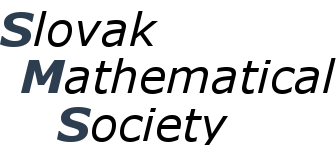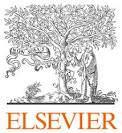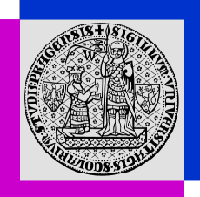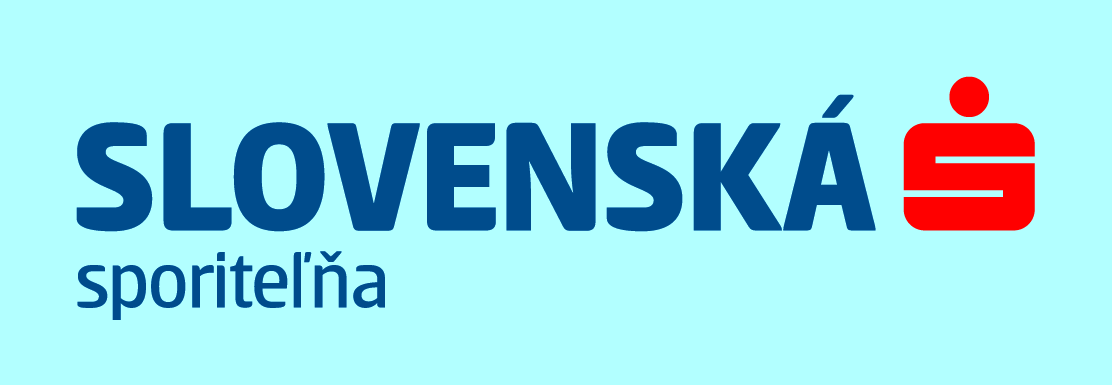Bratislava, Slovakia
26-30 August, 2019


In the tradition of EUROCOMB’01 (Barcelona), EUROCOMB’03 (Prague), EUROCOMB’05 (Berlin), EUROCOMB’07 (Seville), EUROCOMB’09 (Bordeaux), EUROCOMB’11 (Budapest), EUROCOMB’13 (Pisa), EUROCOMB’15 (Bergen), and EUROCOMB’17 (Vienna) this conference will cover the full range of Combinatorics and Graph Theory including applications in other areas of Mathematics, Computer Science and Engineering.
Continuing with the tradition established at EUROCOMB’03 in Prague, the European Prize in Combinatorics will be awarded during the conference EUROCOMB’2019. The prize has been established to recognise excellent contributions in Combinatorics, Discrete Mathematics and their Applications by young European researchers (eligibility of EU) not older than 35. The prize carries a monetary award of 2500 Euro. The nomination letter including CV and the list of publications of the nominee must be sent to the organisers of EUROCOMB’19 before 15 April, 2019. The nominations will be evaluated by an international jury.
Abstract submission deadline: 15 March, 2019 22 March, 2019
Nominations for the European Prize in Combinatorics deadline: 15 April, 2019
Notification of acceptance of abstract: 30 April, 2019 6 May, 2019
Early registration deadline: 30 June, 2019
EUROCOMB’19: 26-30 August, 2019
There will be a special volume of Acta Mathematica Universitatis Comenianae (AMUC) with the accepted extended abstracts. The journal is covered by Elsevier Scopus, Web of Science, Mathematical Reviews and zbMATH. Please note that the publisher of AMUC will NOT restrict the author(s) from publishing a full-length article on the same topic and with the same title in another journal (possibly with another publisher) provided that the original publication is sufficiently enhanced (i.e. approximately doubled in size). Likewise, publication of full length manuscripts containing results that have appeared in the form of an extended abstract in proceedings of a conference is in line with policies of most major publishers. Note, however, that it is not possible to submit an extended abstract of an already published paper. An extended abstract of a full-length paper accepted before the submission deadline at EUROCOMB’19 will not be accepted either.
After the paper acceptance, the authors will be kindly asked to format the paper according to AMUC style (LaTeX template, compiled template, AMUC package).
Andreas Björklund
Lund University, Sweden
Marston Conder
University of Auckland, New Zealand
Peter Keevash
University of Oxford, UK
Margaret Readdy
University of Kentucky, USA
Alex Scott
University of Oxford, UK
Paul Seymour
Princeton University, USA
Jozef Širáň
Slovak University of Technology, Slovakia
Hehui Wu
Fudan University, China
Tamar Ziegler
Hebrew University of Jerusalem, Israel
E-mail to the organising committee: eurocomb2019@uniba.sk
Registration:
To register please fill in the registration form. In case of any change to the submitted registration please contact the organisers.
Fees and payment deadlines:
The fees cover the attendance to all sessions, lunches, conference material, coffee breaks, conference trip, and the European Prize in Combinatorics reception. Note that the registration does not include hotel rooms. See below for hotel information.
Conference dinner:
The conference dinner is on Thursday.
Bank transfer details:
The list of participants is updated manually. Your name will not appear automatically after your registration.
Humbert Abel
IRIF, France
Nikolay Abrosimov
Novosibirsk State University, Russia
Péter Ágoston
Eötvös Loránd University, Hungary
Akram Al-Mulsi
Public Telecommunication Corporation (PTC), Yemen
Andres Aranda Lopez
Technische Universität Dresden, Germany
Andrei Asinowski
University of Klagenfurt, Austria
Miraftab Babak
Universität Hamburg, Germany
Sebastian Babiński
Jagiellonian University, Poland
Gill Barequet
Technion - Israel Inst. of Technology, Israel
Natalia Bednarz
Rzeszow University of Technology, Poland
Paweł Bednarz
Rzeszow University of Technology, Poland
Felix Bock
Ulm University, Germany
Miklos Bona
University of Florida, United States
Henning Bruhn-Fujimoto
Universität Ulm, Germany
Timothy Chan
Monash University, Australia
Shifeng Chen
Jinan University, China
Zhaojun Chen
HSFZ Guangzhou, China
Shuya Chiba
Kumamoto University, Japan
Jihoon Choi
Cheongju University, Korea, South
Marston Conder
University of Auckland, New Zealand
Oliver Cooley
Graz University of Technology, Austria
Jacob Cooper
Masaryk University, Czech Republic
Jan Corsten
London School of Economics, United Kingdom
Matthew Coulson
University of Birmingham, United Kingdom
Julien Courtiel
Université de Caen Normandie, France
Chris Cox
Carnegie Mellon University, United States
Konrad Dabrowski
Durham University, United Kingdom
Attila Dankovics
London School of Economics, United Kingdom
Michał Dębski
Masaryk University, Czech Republic
Yury Demidovich
Moscow Institute of Physics and Technology, Russia
Jorin Dornemann
TU Hamburg, Germany
Sergey Dovgal
University Paris-13, France
Stefan Ehard
Ulm University, Germany
Joshua Erde
Universität Hamburg, Germany
Alberto Espuny Díaz
University of Birmingham, United Kingdom
Stefan Felsner
TU Berlin, Germany
Miquel Àngel Fiol
Universitat Politècnica de Catalunya, Spain
Jovana Forcan
University of Novi Sad, Serbia
Nora Frankl
London School of Economics, United Kingdom
Sebastian Gonzalez Hermosillo de la Maza
Simon Fraser University, Canada
Diego González-Sánchez
Autonomous University of Madrid, Spain
Frederik Garbe
Czech Academy of Sciences, Czech Republic
Andrzej Grzesik
Jagiellonian University, Poland
Jarosław Grytczuk
Warsaw University of Technology, Poland
Ervin Gyori
MTA Renyi Institute, Budapest, Hungary
Mei Mei Gu
Charles University, Czech Republic
Robert Hancock
Masaryk University, Czech Republic
Lefmann Hanno
TU Chemnitz, Germany
Adriana Hansberg
UNAM, Mexico
David Hartman
Institute of Comp. Science CAS, Czech Republic
Meike Hatzel
TU Berlin, Germany
Petr Hliněný
Masaryk University, Czech Republic
Eng Keat Hng
London School of Economics, United Kingdom
Winfried Hochstättler
FernUniversität in Hagen, Germany
Daniel Horsley
Monash University, Australia
Jan Hubička
Charles Univeristy, Czech Republic
Lucas Isenmann
LIRMM, France
Sven Jäger
Technische Universität Berlin, Germany
Robert Jajcay
Comenius University, Slovakia
Tatiana Jajcayova
Comenius University, Slovakia
Stanislav Jendroľ
P. J. Safarik University in Kosice, Slovakia
Yiting Jiang
Zhejiang Normal University, China
Gareth A. Jones Jones
University of Southampton, United Kingdom
Felix Joos
University of Birmingham, United Kingdom
Sean Kafer
University of Waterloo, Canada
Gyula Károlyi
Eötvös University and Rényi Institute of Mathematics, Budapest, Hungary
Chaya Keller
Technion, Israel
Balázs Keszegh
Alfréd Rényi Institute of Mathematics, Hungary
Bartłomiej Kielak
Jagiellonian University, Poland
Yun-Hwan Kim
Cheongju University, Korea, South
Sergei Kiselev
Moscow Institute of Physics and Technology, Russia
Martin Knor
Slovak University of Technology, Slovakia
Anna Kompišová
Comenius University, Slovakia
Matěj Konečný
Charles University, Czech Republic
Michal Korbela
Masaryk University, Czech Republic
Daniel Kral
Masaryk University, Czech Republic
Heidrun Krimmel
FernUniversität in Hagen, Germany
Matjaž Krnc
UP FAMNIT, Slovenia
Andrey Kupavskii
Moscow Institute of Physics and Technology, Russia, and
University of Oxford, United Kingdom
Ander Lamaison
Freie Universität Berlin, Germany
Richard Lang
University of Waterloo, Canada
Zbigniew Lonc
Warsaw University of Technology, Poland
Antoni Lozano
Universitat Politècnica de Catalunya, Spain
Huajing Lu
Zhejiang Normal University, China
Hoi Ping Luk
HKUST, Hong Kong
Robert Lukoťka
Comenius University, Slovakia
Martin Mačaj
Comenius University, Slovakia
Edita Máčajová
Comenius University, Slovakia
Giulia Maesaka
Universität Hamburg, Germany
Ryan Martin
Iowa State University, United States
Tomáš Masařík
Charles University, Czech Republic, and
University of Warsaw, Poland
Jana Maxová
University of Chemistry and Technology, Czech Republic
Ján Mazák
Comenius University, Slovakia
Walner Mendonça
IMPA, Brazil
Tamás Mészáros
Freie Universität Berlin, Germany
Abhishek Methuku
École polytech. féd. de Lausanne, Switzerland
Tamás Róbert Mezei
Alfréd Rényi Institute of Math., HAS, Hungary
Adrian Michalski
Rzeszow University of Technology, Poland
Yannick Mogge
TU Hamburg, Germany
Bojan Mohar
SFU & IMFM, Canada
Elena Mohr
Ulm University, Germany
Samuel Mohr
TU Ilmenau, Germany
Torsten Mutze
University of Warwick, United Kingdom and
Charles University Prague, Czech Republic
Misha Muzychuk
Ben-Gurion University of the Negev, Israel
Zoltán Lóránt Nagy
MTA-ELTE GAC, Hungary, and
Eötvös Loránd University, Hungary
Paweł Naroski
Warsaw University of Technology, Poland
Roman Nedela
University of West Bohemia, Czech Republic
Jaroslav Nešetřil
Charles University, Czech Republic
Knut Odermann
TU Chemnitz, Germany
Pablo Oviedo Timoneda
Universitat Politècnica de Catalunya, Spain
Giacomo Paesani
Durham University, United Kingdom
Dömötör Pálvölgyi
MTA-ELTE CoGe, Hungary
Olaf Parczyk
TU Ilmenau, Germany
Soňa Pavlíkova
Slovak University of Technology, Slovakia
Yanitsa Pehova
University of Warwick, United Kingdom
Jakub Pekárek
Charles University, Czech Republic
Christos Pelekis
Czech Academy of Sciences, Czech Republic
Martin Pergel
Charles University, Czech Republic
Théo Pierron
LaBRI, France
Simon Piga
University of Hamburg, Germany
Roman Prosanov
TU Wien, MIPT, Austria
Christopher Purcell
University of West Bohemia, Czech Republic
Tom Raiman
Technical University of Ostrava, Czech Republic
Andre Raspaud
LaBRI Bordeaux University, France
Margaret Readdy
University of Kentucky, United States
Clément Requilé
Technische Universtät Wien, Austria
Israel Rocha
Czech Academy of Sciences, Czech Republic
Arsenii Sagdeev
MIPT, Russia
Marcelo Sales
Emory University, United States
Nika Salia
Alfréd Rényi Math. Institute of HAS, Hungary, and
CEU Central European University, Hungary
Maycon Sambinelli
University of São Paulo, Brazil
Manfred Scheucher
Technische Universität Berlin, Germany
Bjarne Schülke
Hamburg University, Germany
Oriol Serra
Universitat Politecnica de Catalunya, Spain
Jozef Skokan
London School of Economics, United Kingdom
Dmitrii Shabanov
Moscow Institute of Physics and Technology,
Steklov Mathematical Institute, Russia
Talia Shaikheeva
Lomonosov Moscow State University, Russia
Amedeo Sgueglia
London School of Economics, United Kingdom
Sam Simon
Simon Fraser University, Canada
Martin Škoviera
Comenius University, Slovakia
Małgorzata Śleszyńska-Nowak
Warsaw University of Technology, Poland
Evelyne Smith-Roberge
University of Waterloo, Canada
Philipp Sprüssel
Graz University of Technology, Austria
Raphael Steiner
TU Berlin, Germany
Klara Stokes
National University of Ireland Maynooth, Ireland
Ricardo Strausz
Instituto de Matemáticas UNAM, Mexico
Fabian Stroh
University of Amsterdam, Netherlands
Jana Tomanová
Comenius University, Slovakia
Istvan Tomone
EPFL, Switzerland
Casey Tompkins
Karlsruhe Institute of Technology, Germany
James Tuite
Open University, United Kingdom
Adrien Vandenschrick
Université Libre de Bruxelles, Belgium
Lluis Vena Cros
Charles University, Czech Republic
Vasilski Velona
Universitat Politecnica de Catalunya, Spain
Máté Vizer
Alfréd Rényi Math. Institute of HAS, Hungary
Jan Volec
Masaryk University, Czech Republic
Bartosz Walczak
Jagiellonian University, Poland
Sebastian Wiederrecht
TU Berlin, Germany
Hehui Wu
Fudan University, China
Xinyi Xu
London School of Economics, United Kingdom
Lena Yuditsky
Ben-Gurion university, Israel
Oscar Zamora Luna
Central European University, Hungary
Leandro Zatesko
Federal University of Paraná, Brazil
Ahad N. Zehmakan
ETH Zurich, Switzerland
Jean Paul Zerafa
UniMoRe, Modena, Italy
Zanbo Zhang
UESTC, China
Maksim Zhukovskii
Moscow Institute of Physics and Technology, Russia
The name in the parentheses corresponds to the speaker name as in the booklet. The updated version of the booklet that includes short abstract is available. You can also download all the extended abstracts accepted for the Eurocomb 2019 (31MB). The programme is available as a single pdf file.
You might want join the above-mentioned activities only partially and enjoy an individual walk in the village or its surroundings.
There are a number of regular bus lines that will take you directly from the airport to the stations Bratislava Most SNP (prefered for most locations in the city centre, including the venue) and Bratislava Mlynské Nivy.
Bratislava Airport is serviced by public transport, use line 61 and change to trams at Trnavské mýto or Račianske mýto stops. Taxi to the conference venue should cost approximately 20 EUR.
The closest stop to the conference venue is Šafárikovo námestie. You have to buy tickets in advance using ticket vending machines, which are available at all major stops. Further information about public transportation with maps and schedules can be found at imhd.sk.
The participants are expected to take care of their own accommodation. A limited number of effordable rooms is available at the student hotel Družba. The price for a single room at Družba is 28.30 € plus 1.70 € city tax per night. Double room costs 47 € per room plus 1.70 € city tax per person per night. ISIC holders under 26 are exempted from the city tax. In case of interest in the Družba accommodation, select the option in the registration form and we send you additional information. Requests will be processed on `first come first serve' basis but not later than 30 June, 2019.
The participants are expected to take care of their own accommodation. A limited number of effordable rooms is available at the student hotel Družba. The price for a single room at Družba is 28.30 € plus 1.70 € city tax per night. Double room costs 47 € per room plus 1.70 € city tax per person per night. ISIC holders under 26 are exempted from the city tax. In case of interest in the Družba accommodation, please contact the organising committee for further information. Requests will be processed on `first come first serve' basis but not later than 30 June, 2019.


Comenius University

Faculty of Mathematics,
Physics and Informatics


Slovak Society
for Computer Science


Dimatia



